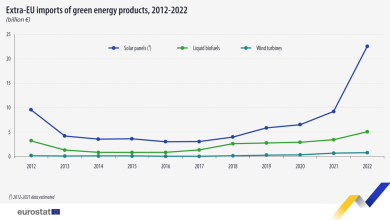What kind of debt do institutional investors look for?
In the US and Western Europe, private debt has become mainstream and managed to become an investment class on its own. In Romania, as well as the majority of CEE countries, it is still rather unknown method of financing a company’s growth. At European level, according to Deloitte Alternative Lender Deal Tracker Summer 2018[1], private debt is primarily used for M&A transactions, amounting to a total of 67% of transactions aiming to fuel acquisitions while dividend recap, refinancing or growth capital are in minority. While these statistics do take Romanian deals into consideration, it is clear that they do not represent at all the current situation given the small number of private debt deals happening locally.
This year alone we, CVI, have managed to provide a 25m EUR financing to Aaylex Group, after two previous investments carried out in 2017 – in Impact SA (EUR 12 million) as well as One United Properties (EUR 20 million). Of course, we do not make the whole Romanian market as in the past years we have also witnessed a number of smaller deals, mostly targeting retail investors, that floated on the Bucharest Stock Exchange’s AeRO market. Overall, we see that there is a growing appetite coming from local entrepreneurs to diversify their companies’ financing structure, be it through equity or private debt, although still at lower levels when compared to players from other regional markets, Poland being the ultimate leader in this field.
In Romania, primarily thanks to the low cost, traditional bank financing remains the most popular mean of financing businesses, regardless of that fact that it offers limited leverage and flexibility, long and strict investment process and is generally not available for financing small and medium-sized M&A tickets. When looking at these specific characteristics and comparing them with the financing offered by private debt companies, it is clear that we do not compete with banks – our target businesses are completely different. Why so? Because we have a higher, when compared with banks, return expected due to a higher risk profile. This already helps us filter out an overwhelming majority of projects, where companies are looking for the lowest possible cost of capital. For those entrepreneurs who are looking for flexibility rather than low cost, private debt financing is usually the best possible choice – it allows to keep full control of the business, brings greater structural flexibility, provides access across the full capital structure and is significantly faster than bank financing. Most importantly, it is available for higher-risk situations where the banks are usually not able to provide financing and is provided under a tailor-made structure.
While it all sounds relatively straightforward, given how robust the Romanian entrepreneurial sector has become in the past few years, even managing to re-start the local IPO market after a decade of inactivity from private companies, why do not we hear about more local private debt deals? On one hand, it is caused by the lack of awareness from entrepreneurs that such financing opportunities are present in Romania, which we are dedicated to changing, engaging in dialogues with many local companies. On the other hand, it is also caused by the fact that taking into consideration the higher risk already adherent to this kind of instrument, our screening process is also a thorough one, which requires a large level of openness and transparency coming from the entrepreneurs themselves. We are open to provide financing for all kinds of goals – working capital, capital expenditure and investments, acquisitions, buyouts, refinancing of existing debt or even payment of additional dividends, but we always require a sound business plan from our partners that shows how can it support the company’s growth prospects.
In practice, this means that we do analyse the business model drivers, look for opportunities, analyse the competition and of course carry out advanced financial analysis that looks at profitability, cost, balance sheet structure, liquidity, cash flow and financial metrics and rating. In some cases, we encounter bottlenecks or deal-breakers that we cannot overpass but in others, we manage to find partners, to whom we become a lender of a choice.
We’ve had 108 such partners last year alone, private companies, to whom we provided financing, 2 of them being Romanian. We keep looking for more, eager to grow the Romanian private debt market and further the development of the local economy.
About CVI
CVI is a private debt manager, one of the largest investors in the region of Central and Eastern Europe and one of the biggest European institutions investing in corporate debt instruments, based in Warsaw, Poland. CVI begun its operations in 2011 and quickly became the leader in non-bank debt financing in Poland and the region. Since 2012, CVI has closed over 700 corporate debt transactions (out of which 450 were in private debt) and invested over EUR 1.6 billion in CEE. CVI has currently over EUR 1.3 billion assets under management out of which estimated EUR 1 billion is invested in private debt in the region. The company plans to double that amount no later than by 2021.
[1] Deloitte Alternative Lender Deal Tracker Summer 2018, available here: https://www2.deloitte.com/content/dam/Deloitte/uk/Documents/corporate-finance/deloitte-uk-aldt-summer-2018.pdf







